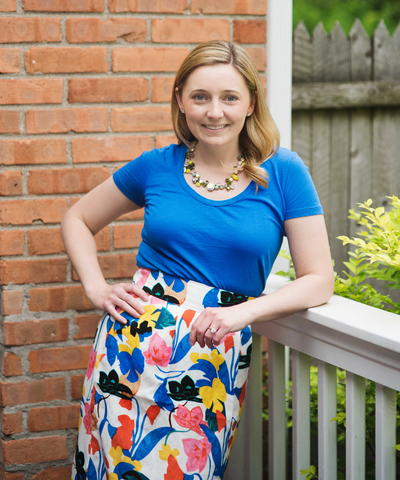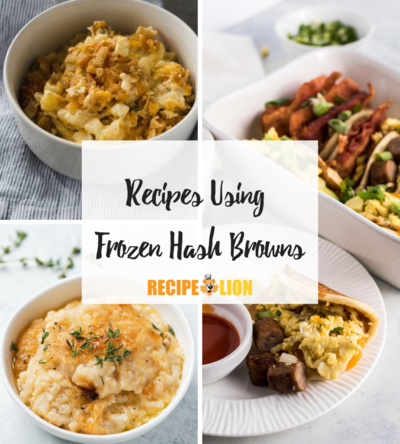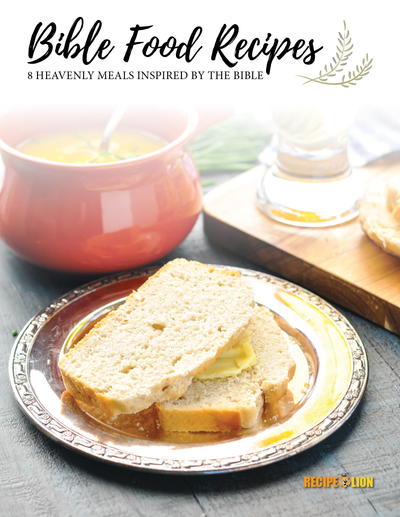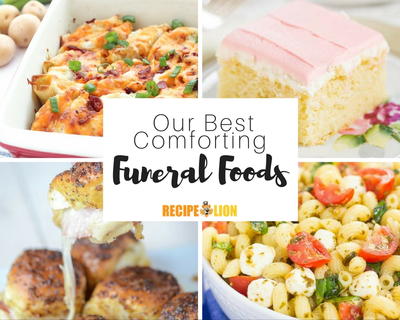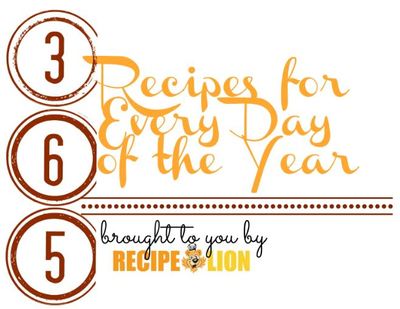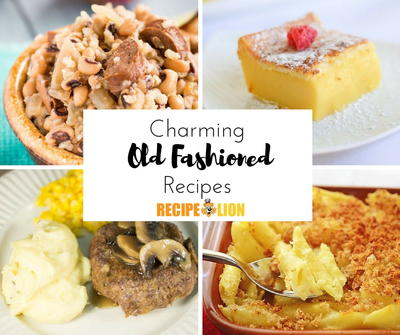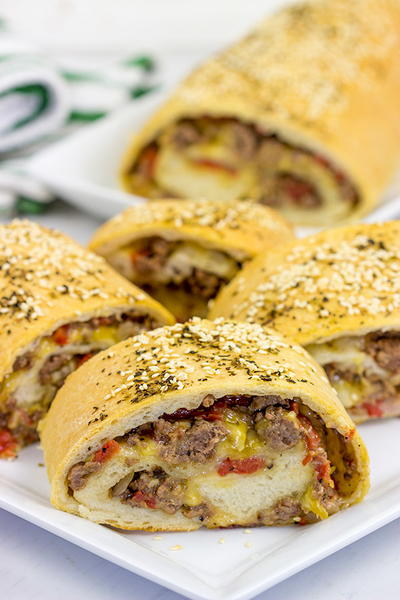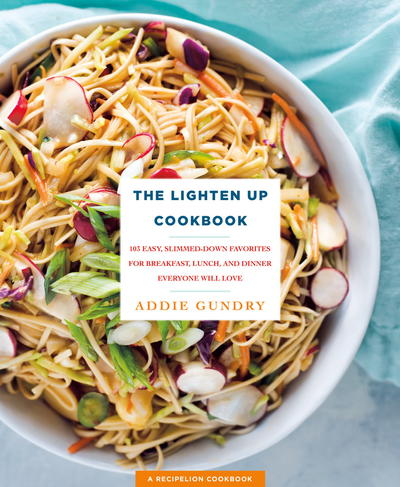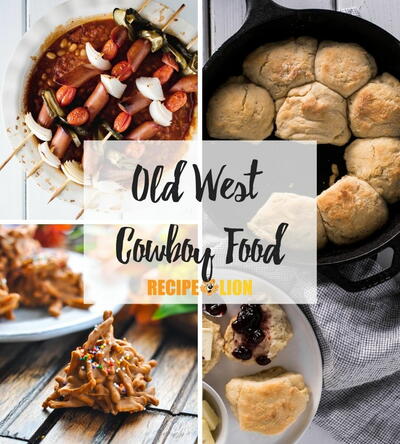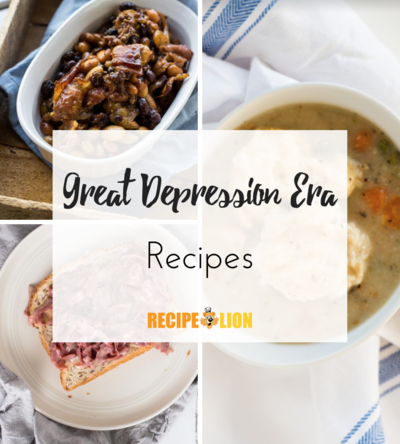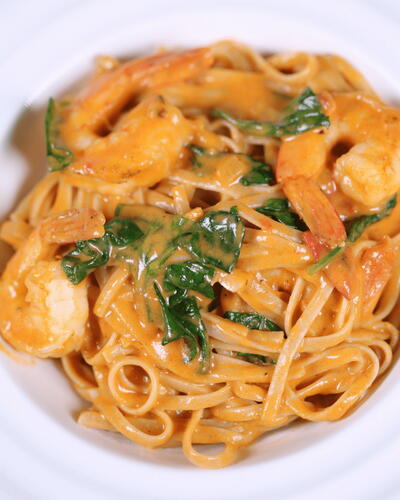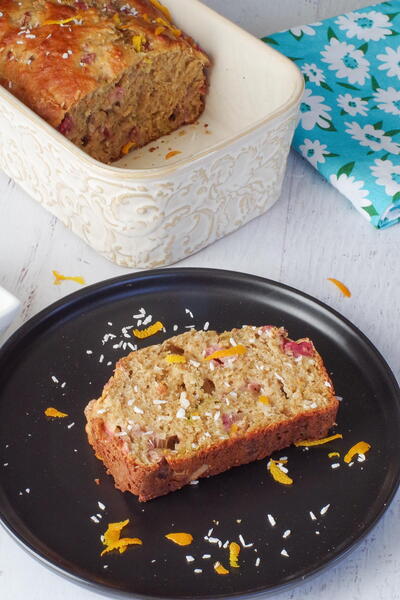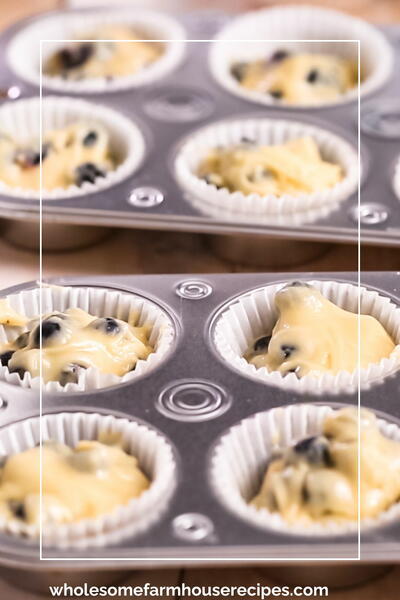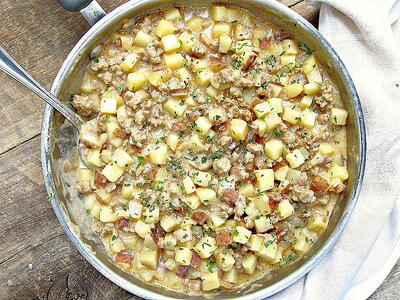Test Kitchen Tips with Addie Gundry
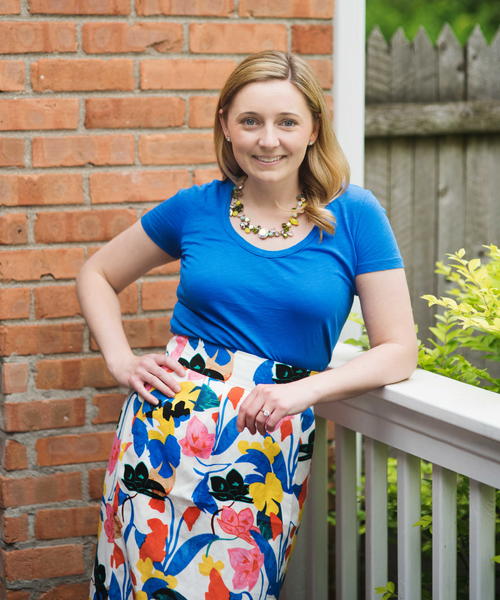
Have you ever wondered what it would be like to work in a test kitchen? You'd get to develop recipes, practice food photography, and much, much more! If this sounds like your dream job, then you might be interested in hearing a bit from someone who's been in the business for a minute or two. RecipeLion's Executive Producer, Addie Gundry, sat down with me to talk about cookbook production, cooking while wearing makeup (thanks, Food Network), and what it takes to brave the Prime Publishing test kitchen every day.
10 Questions for Addie Gundry
RecipeLion: How do you prepare for a recipe video shoot?
Addie Gundry: It is important to begin as organized as possible because usually things get chaotic (basically, all hell breaks loose!). I prepare by printing my recipes and ordering the groceries that I need. I look at each recipe and think about how I want to style the dish and make sure that if I need a glass of wine in the photo for example that I have wine. I have to look beyond the ingredients in the recipe and think about what you may serve the dish with. Soup may require a piece of baguette, coffee cake may need coffee on the side, and so on.
On the shoot day, I jump right in. I start cooking as early and fast as possible. I have my dishes lined up with post-its that correspond with the dish name so that I know what equipment and plates I need. It is a messy game, but one that I love!
Addie in the test kitchen:
RL: What is your best food photography or video tip?
AG: Skip the seasoning. There are some shortcuts you can take when making food for photos. Make sure you have the seasonings portioned out just right when initially testing the recipe, but you don’t need salt, pepper, etc., when you’re just taking the picture since you won’t be tasting the food. I know this sounds little, but when cooking over a dozen things a day for photography purposes, you really save time if you stick to the basics.
RL: What is the most difficult thing about photographing/filming food and how do you overcome those challenges?
AG: I always say that my by biggest pet peeve is when I burn something, but that usually just means that I wasn’t paying attention or I was going too fast. The biggest challenge though is getting burnt out. For our cookbook series, each book has 103 recipes and we're making 1 book a month. That is a lot of food to make and photograph and the days get long!
Take a peek at our brand new cookbook series:

RL: How long does a recipe video usually take from start to finish? (+ what shots must you always include when filming?)
AG: If I am not in the video, hands-only, then they can be pretty quick! Prep takes about 20 minutes, then you have the average time it takes to make the recipe. After that, it is really quick to combine the two on camera [usually prep is already done, but you may have to chop or dress something on camera, etc.]. Some recipes you have to let cook and then film the reveal, but I would say in general, I can film 2 recipes in an hour.
Check out one of our Quick Bites videos, which Addie helps produce:
RL: How do you plan your production schedule?
AG: We have deadlines and due dates for both our videos and cookbooks. It is a game of Tetris trying to fit everything in. I am cooking all the time basically!
RL: How big a role does improvisation play when cooking?
AG: Improv is huge. Cooking is a science, but also an art. Things just don’t really go the way you plan all the time. When they do, that is fantastic, but a lot of things can happen, and experience and confidence give you the ability to figure it out on the fly. The minute you get flustered in the kitchen is the minute you need to stop because your ability to figure something out on the fly is very important. If you burn out or lose that creativity then you need to take a break.
Addie cooking on camera in the test kitchen:
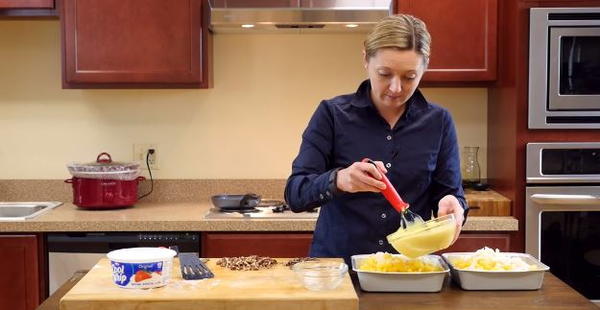
RL: What challenges does cooking for an audience (on video or live) pose for you personally?
AG: Cooking when no one is watching is a lot easier because things go wrong, you are messy, etc., and the process does not matter – only the end result does. When you host a dinner party and everything looks and tastes fabulous, it doesn't matter that you burnt the first batch of cookies or that the dog drank the booze that spilled all over the floor. There is less stress because no one is there to witness the chaos.
But on camera, it is the exact opposite. The end result and taste do not matter as much as the preciseness and beauty of the process. Every step counts. At work, filming it is fun and easy, but when you are in front of an audience they can sense and smell ANY mistake. It becomes more about being confident and having a funny personality to mask any mistake you may make along the way. It is a carefully choreographed dance.
I tell my husband, “It's like trying to play football while entertaining a crowd." Football or hockey players (the two sports I like!) are just focused on winning. Focused on completing the pass. They could care less if people are watching because they are not trying to entertain them. I have to focus on executing the dish while also talking and being charming. It can be difficult.
Also, I like wearing leggings and t-shirts (plus my ugly Crocs or sneakers) -- a.k.a. being comfy in the kitchen. I spent most of my early career in kitchens without any makeup on, but now that I cook on camera and in front of an audience, I have to maintain an appearance too. (Put those professional football players in a dress and makeup and see how well they perform!) I'm also pregnant right now, so the appearance thing is even harder for me because it's so much effort.
An example of Addie's food styling for her new cookbook series for RecipeLion:
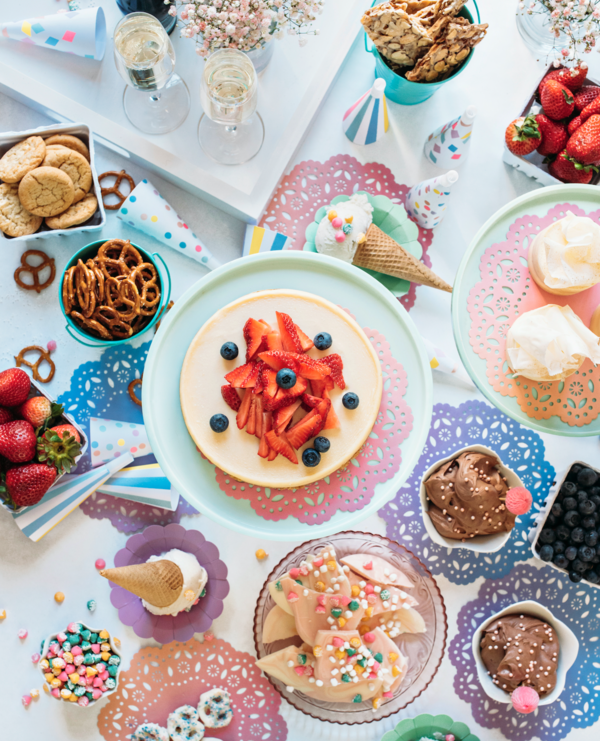
RL: How has your culinary background and your experience on the Food Network aided you in your role at Prime Publishing?
AG: I rely on my experience. I've been fortunate in my career to have top training and because of this, I am very comfortable with food. I am confident in my ability to make nearly anything, and that helps me in the test kitchen. I was formally trained, I have worked in very fine dining, for high profile publications, and I have learned how to cook under pressure.
On the Food Network, they say, "Okay, your challenge is XYZ. Ready, go!" That never makes me anxious because I'm never afraid of what I may have to cook. This mentality helps me in the test kitchen at Prime Publishing because no matter what the recipe, I feel like I can find a way to make it work and make it work well.
RL: What advice would you give to someone interested in recipe development and food photography as a career?
AG: DO IT! This is the coolest job around. Most importantly though, practice. I look back (even just a couple years) at my photography, and I am embarrassed. But like with anything, you get better with practice.
It's like reading an essay you wrote in high school or college that you thought was good but now are like, "Wow. I sound so young." Experience helps, and so does failure. I learn more when I mess up -- far more. When something works out perfectly you move on with excitement, but when you mess something up, you look at it more critically, and figure out why. After that one time, I promise, you will never mess it up again.
When I worked in product development, I found that I learned so much faster when I would screw something up versus when something would go the way I planned it -- that's how you learn!
Pictured below: grilled pizza, funfetti doughnuts, and chicken wings. These recipes appear in her cookbooks and on her blog, Easy Elegant Entertaining:
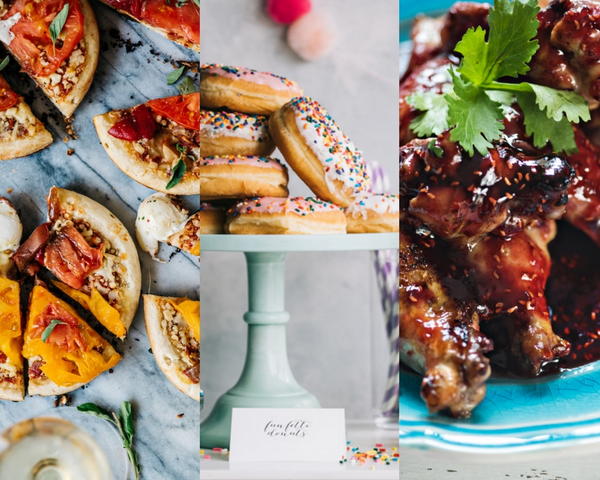
RL: What would someone who knows nothing about the industry find most surprising about recipe production/working in a test kitchen?
AG: I think a lot of people think that I go to work and bake cookies all day, but it's a lot more complicated than that. There is a lot of planning that goes into what I do, and a lot of research (i.e. trends, competitive recipes, etc.). Adaptation and experimentation do not always work; there is a lot of trial and error in my day to day.
People may also be surprised at how small our team is. We do not have prep cooks or dishwashers, etc. Many times, it's just me, which is why it can get tiring. I also change shoes in the middle of the day. Out of one ugly pair of crocs, and into the next!

